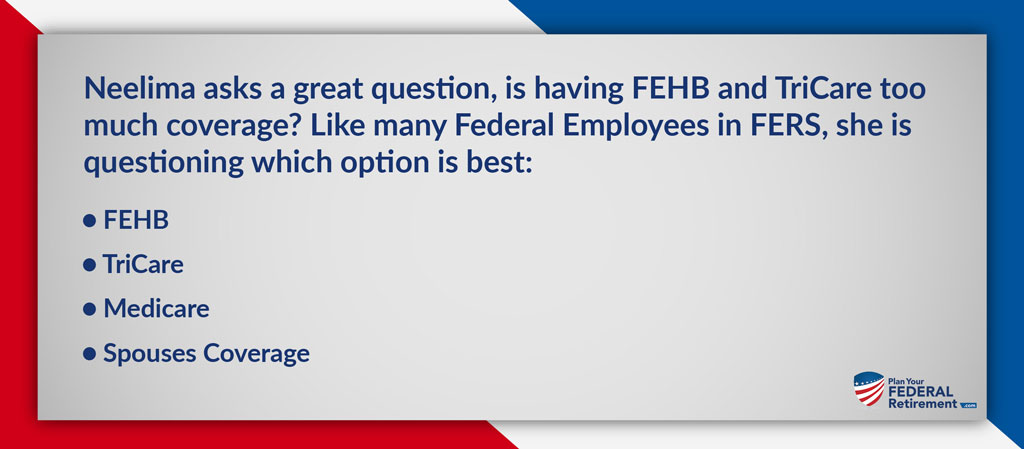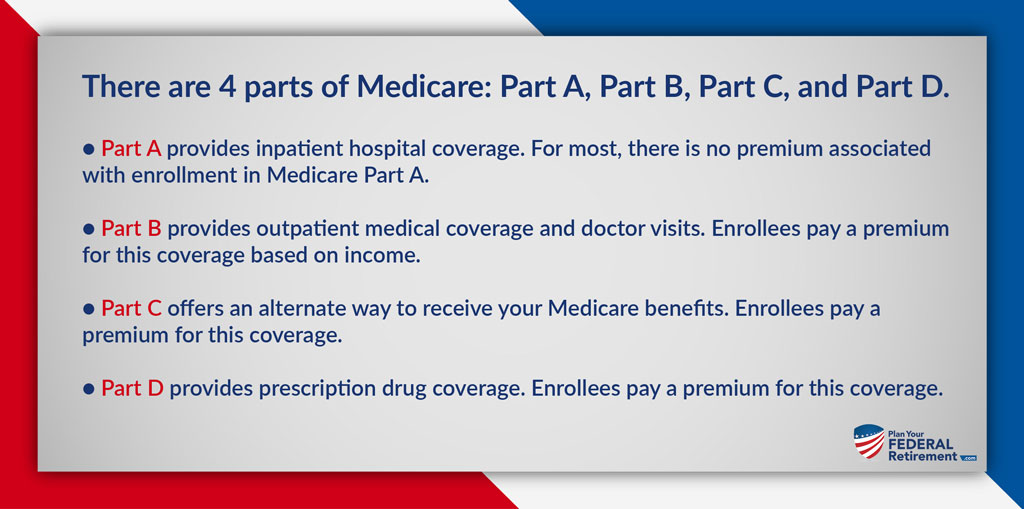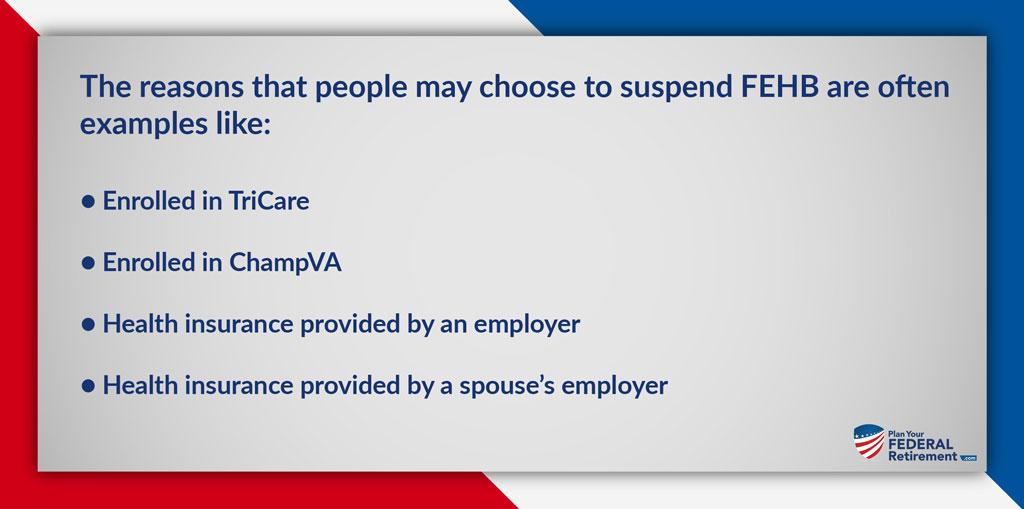“I will be 65 years old next July and plan on retiring in Dec. 2022. I am covered under my husband’s health plan and also have FEHB self only. I also have Tricare. I feel maybe it is too much. Should I suspend my FEHB and just use Kaiser and Tricare? How will it work when I turn 65 and get Medicare? So far I have not been using Tricare.I receive disability payment from the military will that stop when I retire?”
Health Insurance Options in Retirement
Federal Employees have health insurance coverage options through the Federal Employee Health Benefits System (FEHB). Often, Federal Employees who either had prior military service or are married to a military service member, have the option to maintain Tri-Care Health Insurance as well.
FEHB vs. TriCare
Never forfeit your FEHB coverage. We have said it once but we will say it a thousand times more until every Federal Employee hears us: the ability for Federal employees to maintain health insurance through retirement is their BEST benefit.
If anyone tells you to cancel your coverage because you do not need it, they do not understand your Federal Employee benefits.
Runaway from the person telling you to cancel your FEHB. If you cannot run, walk swiftly.
If you have a situation like Neelima’s where you have multiple options for health insurance coverage, you do not have to cancel your FEHB to choose another plan.
Rather, you can suspend your FEHB coverage without forfeiting the option to reactivate the coverage later should you choose to do so.
TriCare on average is far less expensive than traditional FEHB coverage. This is often why Federal employees who are eligible to participate in TriCare choose to keep that coverage in place as their primary insurer. You can enroll in TriCare and suspend your FEHB options.
There are other reasons that Federal Employees may choose TriCare over FEHB like coverage options, primary care providers, etc., but for the purpose of understanding how your benefits as a federal employee work we will not go into those here.
If I have TriCare do I have to enroll in Medicare?
TriCare will require at age 65 that you enroll in Medicare Part A.
If you have TriCare coverage you still have to enroll in Medicare at age 65. If you look at your military ID card as a retiree, you may see that it expires when you turn age 65 – the year that you are eligible to enroll in Medicare.
If you are still working in the private sector at age 65, you can delay enrolling in Medicare and maintain your health insurance coverage through your employer. There are some hard rules about when you can enroll in Medicare. If you are thinking of postponing your enrollment in Medicare, because you have helaht insurance through an employer, make sure that you understand the dates and timelines.
Many people enroll in Medicare Part A when they’re still working past age 65 because for most, there are no premium costs associated with doing so.
Medicare Parts B, C, D, and so forth have premiums associated with them contingent on your income.
A Medicare Supplement or “Medi Gap” policy is purchased in the private insurance sector.
Suspending your FEHB
As a retiree, you can choose to suspend your FEHB at any time. If you have retired from Federal Service and want to suspend your FEHB coverage you are able to do so without jeopardizing your ability to reactivate FEHB later.
To suspend your FEHB, retirees can call the Office of Personnel Management at 1-888-767-6738 and request a “Suspension Form”.
To reactivate FEHB after having it suspended, retirees can call the Office of Personnel Management at 1-888-767-6738 and request the form to do so.
Remember, suspend never cancel your FEHB coverage.






